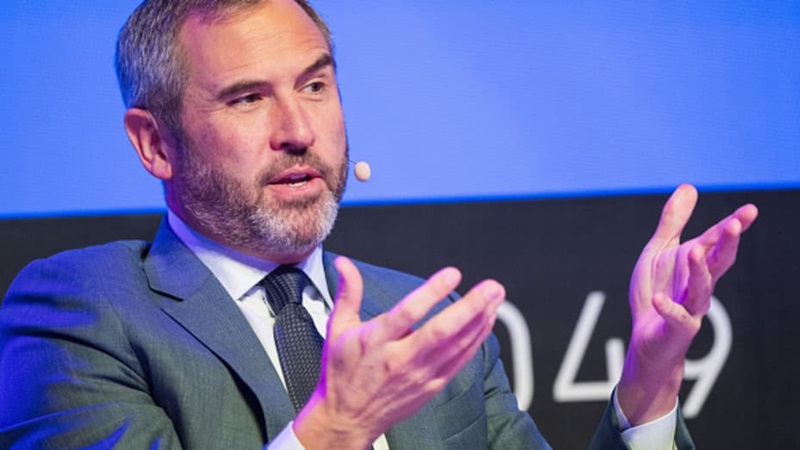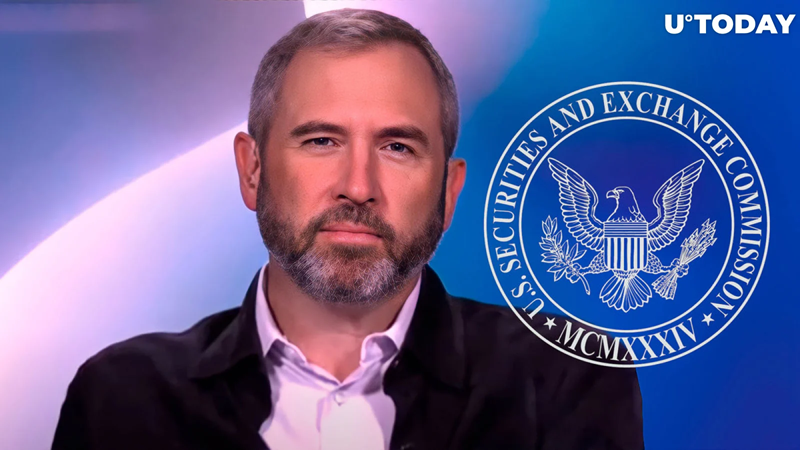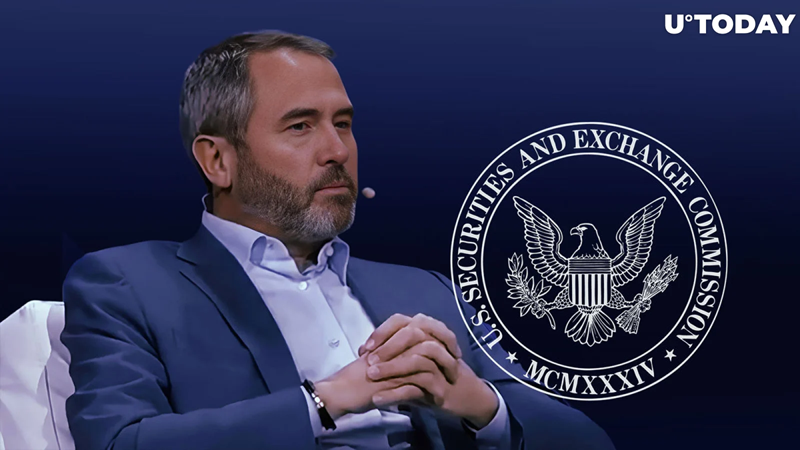Ripple’s CEO and Chief Legal Officer recently celebrated a major win in the ongoing battle against the SEC regarding the XRP case. The victory marks a significant milestone for the company and its cryptocurrency, XRP. The outcome of this case has far-reaching implications not only for Ripple and its stakeholders but also for the broader cryptocurrency industry as a whole.
The CEO and Chief Legal Officer have been vocal about their belief in the legitimacy of XRP and their confidence in the company’s compliance with regulatory guidelines. This victory serves as a validation of their claims and reinforces Ripple’s position in the market.
The positive outcome also underscores the importance of transparency and clear communication between companies and regulatory bodies in the rapidly evolving world of digital assets. As Ripple continues to navigate the complex regulatory landscape, this victory provides a much-needed boost to the company and its supporters.
The CEO and Chief Legal Officer have expressed their gratitude to the legal team and all those who have supported Ripple throughout this challenging process. Moving forward, they remain committed to upholding the highest standards of compliance and working collaboratively with regulators to ensure the long-term success of XRP and the broader cryptocurrency ecosystem.

On what was arguably the most monumental day for Ripple and the entire crypto industry, a surge in market value and widespread adoption of digital currencies took the world by storm. Prices skyrocketed, with Ripple leading the charge as one of the top-performing cryptocurrencies of the day. Investors and enthusiasts alike rejoiced as the market cap of the industry reached unprecedented heights, signaling a promising future for digital assets.
This surge in popularity and value was supported by a wave of new partnerships and collaborations between major corporations and blockchain technology companies. These developments not only solidified the legitimacy of cryptocurrencies but also paved the way for mainstream acceptance and integration.
As more and more people began to embrace digital currencies as a viable alternative to traditional financial systems, the entire industry experienced a shift towards greater innovation and progress. The best day for Ripple and the crypto industry was not just a momentary triumph, but a turning point in the evolution of finance and technology. With this newfound momentum, the future of digital currencies looks brighter than ever, poised to revolutionize the way we transact, invest, and interact with money on a global scale.

In the case of SEC v. Ripple, the judge’s rulings have sparked significant debate and speculation within the financial and cryptocurrency communities. The judge’s decisions have been seen as controversial and have raised questions about the regulatory framework surrounding digital assets.
Many have argued that the judge’s rulings could have far-reaching implications for the cryptocurrency industry as a whole. Some have praised the judge for taking a cautious and thoughtful approach to the case, while others have criticized the rulings as being overly restrictive and potentially damaging to innovation in the space.
Overall, the judge’s rulings have highlighted the need for greater clarity and consistency in the regulation of cryptocurrencies and have underscored the challenges of applying traditional legal frameworks to this rapidly evolving technology. As the case continues to unfold, it is clear that the judge’s rulings will have a lasting impact on the future of digital assets and the regulatory environment in which they operate.
The debate surrounding whether or not XRP can be classified as a security has been ongoing for quite some time. Proponents of XRP argue that it should not be considered a security because it is a decentralized digital asset that operates independently of any central authority.
They believe that XRP’s utility as a fast and efficient means of transferring value across borders should be the primary focus when determining its classification. Additionally, they point to the fact that XRP has been used by major financial institutions and payment processors, further solidifying its status as a legitimate digital asset.
On the other hand, critics of XRP argue that its initial distribution through a token sale conducted by Ripple Labs, the company behind XRP, raises concerns about its classification as a security. They argue that the close ties between Ripple Labs and XRP create a level of centralization that could potentially make XRP vulnerable to regulation as a security.
However, supporters of XRP counter this argument by highlighting the significant decentralization that has occurred within the XRP ecosystem over the years. Ultimately, the question of whether XRP should be classified as a security remains a contentious issue that will likely continue to be debated in the coming years.

The SEC’s case against Ripple is still ongoing and has not reached a final resolution. The regulatory agency has accused Ripple of selling unregistered securities in the form of XRP, the cryptocurrency used by the company. Ripple has denied these allegations and has been fighting back against the SEC’s claims in court. The case has been closely watched by the cryptocurrency community and has raised questions about the regulatory framework surrounding digital assets.
While some believe that Ripple should be held accountable for any wrongdoing, others argue that the SEC’s case is misguided and could have far-reaching implications for the industry as a whole. The outcome of this case could have significant implications for the future of Ripple and the broader cryptocurrency market.
As the legal proceedings continue, both sides are presenting their arguments and evidence in an effort to sway the court in their favor. It remains to be seen how this case will ultimately be resolved and what impact it will have on the regulatory landscape for cryptocurrencies going forward. Until a final decision is reached, the uncertainty surrounding Ripple’s legal troubles will continue to loom over the company and its investors.
As we reach the end of our discussion, it is important to reflect on the various perspectives that have been shared. It is evident that opinions on this topic are diverse and often rooted in personal beliefs and experiences. It is crucial to consider the complexity of the issue at hand and the multitude of factors that can influence one’s final thoughts. While there may not be a clear-cut answer or solution, it is important to continue engaging in open and respectful dialogue in order to gain a deeper understanding of the complexities involved.
It is also important to remember that final thoughts are not set in stone and can evolve over time as new information and perspectives come to light. In the end, it is essential to approach this topic with an open mind and a willingness to listen and learn from others.
As we navigate through the complexities of this issue, let us strive to find common ground and work towards solutions that benefit all parties involved. Let us remember that final thoughts are not the end of the conversation, but rather the beginning of a new chapter in our ongoing quest for understanding and progress.